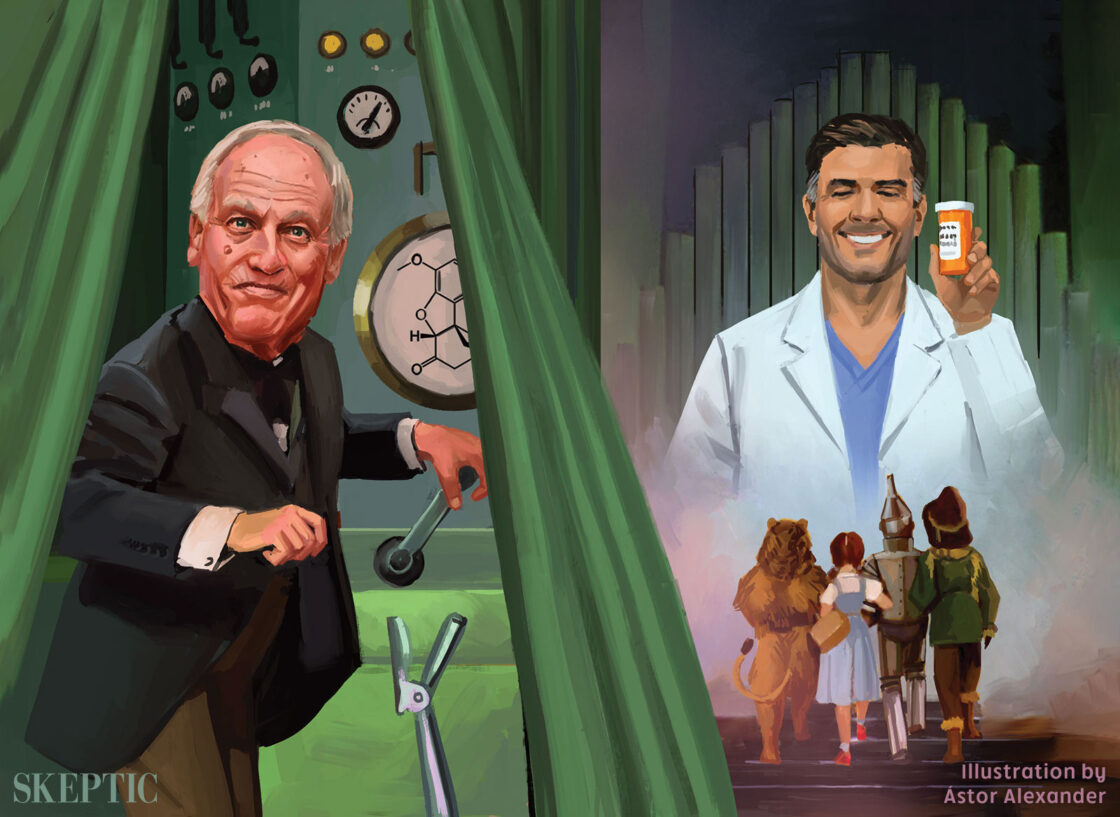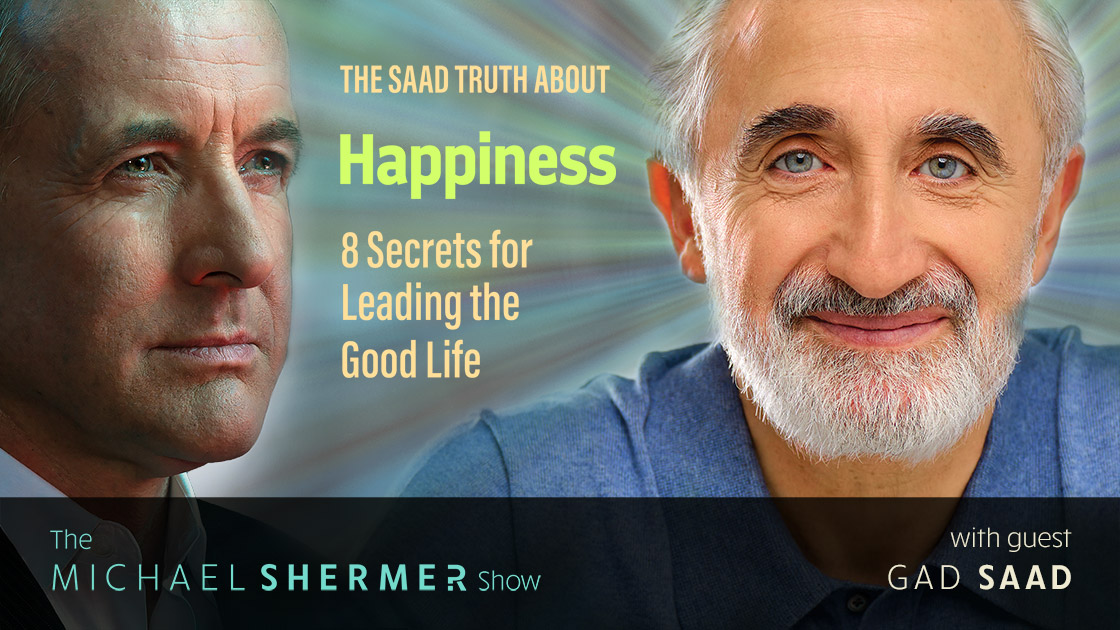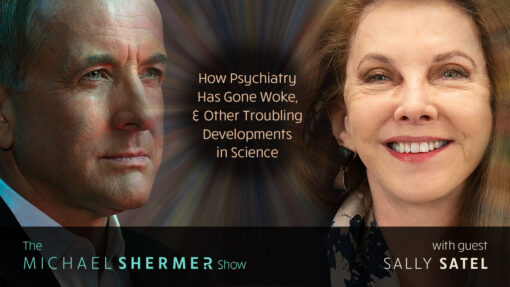addiction

Gerald Posner discusses the opioid crisis, highlighting the history of opioids, the role of the pharmaceutical industry, and the marketing tactics used to promote drugs like OxyContin. Posner emphasizes the greed, poor government regulation, and missed opportunities that contributed to the crisis. He also mentions the legal actions taken against Purdue Pharma and the Sackler family, who profited from the epidemic. The article provides a comprehensive overview of the opioid crisis and its devastating impact on American society.

What happens when sex is more about identity than pleasure, intimacy, or interaction? And what happens when culture warriors gang up on sexuality—and from several directions? And has this affected our mental health? After over 40 years and 40,000 sessions with individuals and couples as a Licensed Marriage and Family Therapist and Certified Sex Therapist, […]

Shermer and Henderson discuss: hindsight bias • genes, environment, luck, contingency • foster care • incarceration rates • marriage, divorce, childhood outcomes • poverty, welfare programs, and social safety nets • the young male syndrome • alcohol, drugs, depression • luxury beliefs of educated elites • wealthy but unstable homes vs. low-income but stable homes • inequality • Henderon’s experience in the military, at Yale and Cambridge • the Warrior-Scholar Project.

Shermer and Saad discuss: operational definitions of the “good life,” “happiness,” and “well being” • emotions • eudaimonia (the pursuit of meaning) versus hedonism (the pursuit of pleasure) • genetics and heritability • cultural components • the Big Five (OCEAN) • marriage (mate selection) • health • exercise and stress reduction • religion • anti-fragility • a playful outlook and curiosity • variety (the “spice of life”) • what the ancient Greeks got right about living the good life •…

Shermer and Klein discuss: sex therapist and the reasons people seek therapy • self-help sex books • sexual orientation • asexuality • sex abuse • infidelity • monogamy • polyamory • trans • homosexuality • sex education • the case against the sexual revolution • sex addiction • pornography • the anti-pornography movement • prostitution • obscenity and censorship • pedophilia.

Michael Shermer and professor of psychiatry, Sally Satel, discuss: how political correctness has corrupted medicine • how wokeness and social justice activism has corrupted psychiatry • What is social justice and who is really practicing it? • medical models of mental illness • why mental illness is so hard to treat • medical models of addiction: where they succeed, where they fail • how addictions are treated • Can one be addicted to porn? • Can one be addicted to…
In episode 243 of The Michael Shermer Show, Michael speaks with psychiatrist Dr. Sally Satel about addiction, the opioid crisis, deaths of despair, and how psychiatry has gone woke.

Is Electronic Screen Syndrome (ESS) real? Is it a disease? An addiction? Do violent video games cause aggression? Can playing video games have positive effects? In this column from Skeptic magazine 25.2 (2020), Harriet Hall, M.D. examines ESS and shares the science.
In SPAS-006, the researchers asked: “Do people with different political orientations have different bases—evidence or emotion—for their political opinions?” PLUS: Harriet Hall, M.D. examines Electronic Screen Syndrome (ESS) and shares the science.
Dr. Raymond Barglow discusses three mistaken approaches to the opioid epidemic in this article that appeared in Skeptic magazine 24.1 (2019). Plus, Michael Shermer dialogues On Freedom with New York Times bestselling author Cass Sunstein.

Dr. Raymond Barglow discusses three mistaken approaches to the opioid epidemic in this article that appeared in Skeptic magazine 24.1 (2019).
What would happen if you stopped watching online pornography for a few months? In this week’s eSkeptic, the debate about pornography addiction and its effects concludes with this response to Marty Klein by Philip Zimbardo, Gary Wilson, and Nikita Coulombe.

What would happen if you stopped watching online pornography for a few months? The debate about pornography addiction and its effects concludes with this response to Marty Klein by Philip Zimbardo, Gary Wilson, and Nikita Coulombe.

Is porn viewing really changing young brains, skewing our views of “normal” sexuality, causing sexual dysfunction, and undermining our ability to relate to real sex? In this article, certified sex therapist and one of the United States’ leading experts on pornography, Marty Klein, responds to the article we published last week by Philip Zimbardo, Gary Wilson, and Nikita Coulombe.

Is porn viewing really changing young brains, skewing our views of “normal” sexuality, causing sexual dysfunction, and undermining our ability to relate to real sex? In this week’s eSkeptic, certified sex therapist and one of the United States’ leading experts on pornography, Marty Klein, responds to the article we published last week by Philip Zimbardo, Gary Wilson, and Nikita Coulombe.
Research is suggesting that pornography addiction may be distorting our ideas of healthy sexual relationships, causing erectile dysfunction, social anxiety, depression, compulsivity, desensitization, anorgamsia, delayed ejaculation, difficulty having sex with real partners, and abnormally low sexual desire. In this week’s eSkeptic, renowned psychologist Philip Zimbardo, along with Gary Wilson (author of Your Brain on Porn), and Nikita Coulombe (co-author of Man Interrupted) discuss the problem of pornography addiction.

Research is suggesting that pornography addiction may be distorting our ideas of healthy sexual relationships, causing erectile dysfunction, social anxiety, depression, compulsivity, desensitization, anorgamsia, delayed ejaculation, difficulty having sex with real partners, and abnormally low sexual desire. In this article, renowned psychologist Philip Zimbardo, along with Gary Wilson (author of the book, Your Brain on Porn), and Nikita Coulombe (co-author of Man Interrupted) discuss the problem of pornography addiction.




















